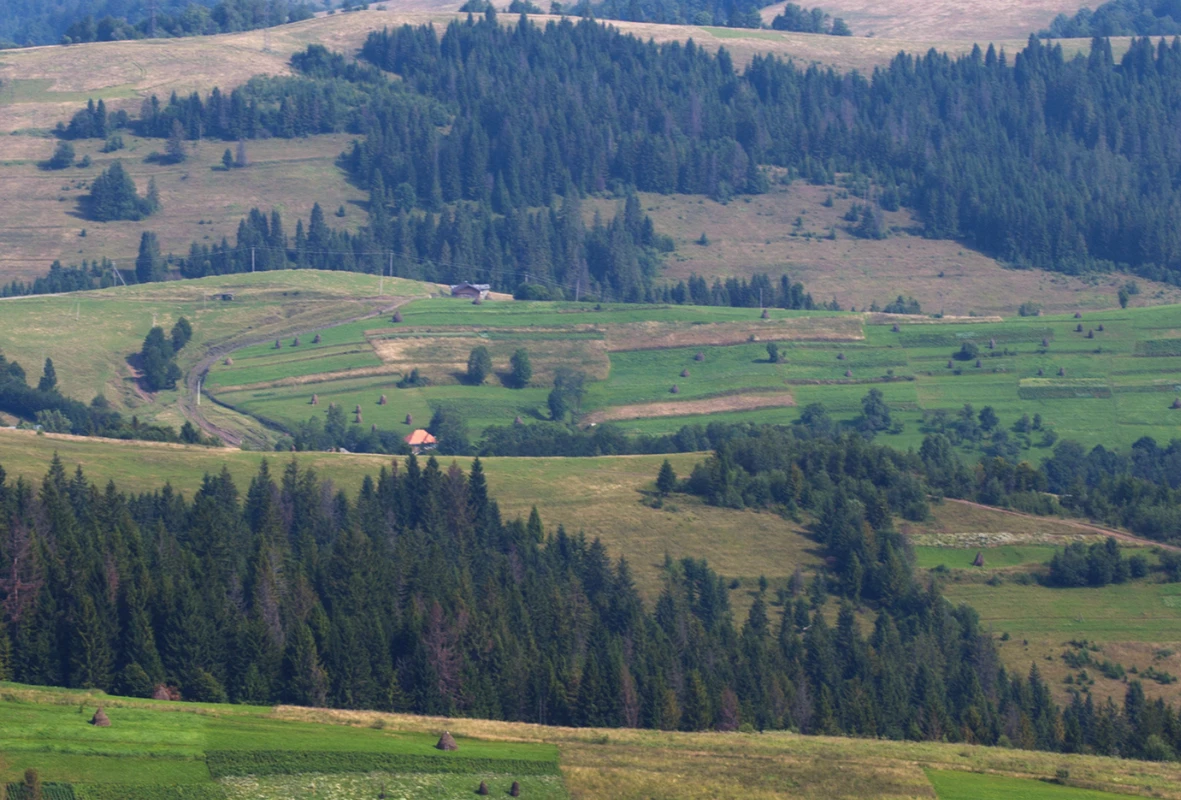„BIODIVERSITY CONSERVATION” - The BIP course - Poland

1) THE TITLE, AIMS AND DESCRIPTION
The title „BIODIVERSITY CONSERVATION”
The BIP course aims to familiarise students from different universities in Europe with the issue of Biodiversity conservation, with particular attention to the guidelines in the EU Biodiversity Strategy for 2030. In general, during the course, students will be introduced to the four pillars of the strategy: (1) protect nature, (2) restore nature, (3) enable transformative change, and (4) EU action to support biodiversity globally. During the face-to-face phase, lecturers and experts will provide short introductory lectures, followed by field visits to the respective forest districts. During the course, multidisciplinary and international groups will work on a challenge posed in the context of biodiversity conservation and present their findings. The specific content of the course:
- methods of identifying valuable components of nature,
- strategies for protecting natural diversity,
- identification and recognition of biodiversity at different levels of complexity
- various methods of biodiversity enhancement,
- ensure sustainable management of biodiversity across all sectors and ecosystems,
- strengthen the biodiversity governance framework, knowledge, research, financing and investments.
After completing the course, students will understand the concept of biodiversity conservation included in the EU Biodiversity Strategy, know how to recognise biodiversity at different levels, preserve or even enrich biodiversity, and effectively and wisely manage areas dedicated to biodiversity protection. Students will also gain skills and competencies in working in international groups.
The course is jointly organised by:
- The University of Agriculture in Krakow (Poland) - coordinator,
- Estonian University of Life Sciences (Estonia),
- South-Eastern Finland University of Applied Sciences (Finland),
- Karelia University of Applied Sciences (Finland),
- Häme University of Applied Sciences (Finland),
- University of Applied Forest Sciences Rottenburg (Germany),
- Trier University of Applied Sciences (Germany),
- University of Thessaly, (Greece)
- Latvia University of Life Sciences and Technologies (Latvia),
- Vytautas Magnus University Agriculture Academy (Lithuania),
- HAS green academy, University of Applied Sciences (The Netherlands),
- Transilvania University of Brasov (Romania),
- University of Belgrade (Serbia),
- Universidad Politecnica de Madrid (Spain).
2) METHODS AND OUTCOMES
The course will be implemented partly virtually and partly face-to-face.
The preliminary virtual phase (24 Apr-18 May):
- 20 hours
- orientation lectures, presenting participants online, background research on biodiversity conservation in groups, preparing a poster
Face-to-face phase (19-24 May):
- 55 hours in total
- lectures and field visits (45 hours), group work (10 hours)
The total amount of hours is 75.
The course is evaluated on a scale of 0-5, where 5 is excellent, 1 is satisfactory, and 0 is failed. Students are continuously assessed during the preliminary and face-to-face phases.
The evaluation is based on the approved completion of the preliminary assignments (15%), group work during the face-to-face phase (60%), and participation in lectures and discussions (25%).
3) THE LEVEL OF STUDIES – TARGET GROUP
Students of the I and II cycles (bachelor and master) of study are eligible to take the course. The minimum English language level requirement is B2.
4) DATE OF THE BEGINNING:
24 April 2025
5) DATE OF END:
24 May 2025
6) PERIOD OF FACE-TO-FACE PART:
19-24 May 2023
7) VIRTUAL COMPONENT SCHEDULE:
The virtual component will be before the face-to-face part.
8) VIRTUAL COMPONENT PERIOD:
24 April – 18 May 2025 Two online meetings are planned. The first online meeting will be organised on 23rd April 2025 at 3 pm CET. During the meeting the practical information will be presented and Carmen Avilés from Universidad Politécnica de Madrid will give a lecture on „Thinking out of the box of biodiversity: finding entrepreneurial opportunities on biodiversity – part I” The second online meeting is planned for 12 May 2025 at 3 pm CET, when the progress of preliminary assignments will be discussed. During the meeting Steffi Heinrichs from the University of Applied Forest Sciences Rottenburg (Germany) will give a presentation on „Forest management and biodiversity in temperate forests - Only conflicts or also synergies?".
9) DESCRIPTION OF THE VIRTUAL COMPONENT
The virtual phase (24 Apr-18 May) comprises 20 hours during which orientation lectures, online presentations of participants, group background research on biodiversity conservation, and poster preparation will be organised. During the virtual phase, the students will look into their own country’s strategy for biodiversity conservation with some examples in groups. This will provide background to the BIP and help set the context. Students’ national groups will prepare the thematic poster based on the country case study analysis. The virtual part will also include orientation to the BIP and lectures.
10) CREDITS:
3 ECTS
11) COURSE CODE:
2023-1-PL01-KA131-HED-000122847-2
12) STUDENT REGISTRATION at the UAK online system:
To have full rights as students in Kraków and to receive the Transcript of Records after finishing the course all participating students need to register in the online system of the University of Agriculture in Kraków. This is the procedure: 1. Go to IRK system through this link: https://irk.urk.edu.pl/en-gb/offer/short_term_stud_2024_summer/programme/BWZ-ERASMUS-BIP/?from=registration:short_term_stud_2024_summer and click on "Sign up" 2. Create an account, go to "Personal forms" and fill in all the necessary information 3. Go back to the registration https://irk.urk.edu.pl/en-gb/offer/short_term_stud_2024_summer/programme/BWZ-ERASMUS-BIP/?from=registration:short_term_stud_2024_summer and click on "Sign up" 4. Complete the questionnaire and submit it. If you need any extra information or support/help, please get in touch with Paula Andrade (from the International Relations Office) at welcome@urk.edu.pl .
She will assist with administrative and registration issues.
